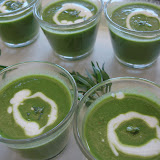 I’ve been consuming sugar unwittingly at every step, even as I try not to. Even at dinner last night in my entrée. Though I’m trying my best to stay away from the stuff since it’s unhealthy and makes me feel awful, it’s nearly impossible because it’s being hidden everywhere. I was so disgusted when I dug into my first mouthful of chicken stir fry last night at a local Thai restaurant and realized it was sugared that I decided to do some research and make the topic of hidden sugar my next blog post. I’m not dogmatic, so this is not to say you should never eat sugar. A little is normal (sugar does occur naturally and its unrefined form doesn’t impact your body as much). But my point is that it shouldn’t be so difficult to avoid, especially when it’s hidden in foods you wouldn’t even want it in.
I’ve been consuming sugar unwittingly at every step, even as I try not to. Even at dinner last night in my entrée. Though I’m trying my best to stay away from the stuff since it’s unhealthy and makes me feel awful, it’s nearly impossible because it’s being hidden everywhere. I was so disgusted when I dug into my first mouthful of chicken stir fry last night at a local Thai restaurant and realized it was sugared that I decided to do some research and make the topic of hidden sugar my next blog post. I’m not dogmatic, so this is not to say you should never eat sugar. A little is normal (sugar does occur naturally and its unrefined form doesn’t impact your body as much). But my point is that it shouldn’t be so difficult to avoid, especially when it’s hidden in foods you wouldn’t even want it in.- One in 3 Americans born after 2000 will contract early-onset diabetes, according to research cited in Food Inc. (opening in theaters Friday, review here).
- Prior to the turn of the century, the average consumption was only 5 lbs per person per year.
- According to the same site that provided the stat above, in the past 20 years, Americans have increased sugar consumption from 26lbs to 135lbs per person per year (I saw numbers as high as 170lbs per person per year elsewhere).
That’s a phenomenal accomplishment, and one that’s making a lot of us sick without even realizing it.
Where is sugar being hidden?
For my Thai dinner, I tried to order healthy – a green bean salad and stir fry in a spicy basil sauce. All was well until I tasted the stir fry and realized it was suspiciously sweet. Then my mind went back to our native Thai classmate Komoot saying Thai restaurants here add sugar. I asked my waitress whether there was added sugar. Sure enough. There was. Who would think to say “No sugar please” when ordering a chicken entree? So word to wise, when you go out for Thai, request no sugar (you should also request no MSG, but that’s a whole other story).
And beyond sneaky sugar in restaurant dishes is another other level of treachery from those who profit from the consumption of sugar. For the food industry, sugar is cheap to produce, and the cheaper the calorie, the bigger the profit margin, so they try to slip more and more of it past us. One way to do this is by including multiple forms of sugar in a single food. Since food labeling practices specify listing ingredients in order of amount, if the “sugar” is divided into multiple varieties, all of a sudden it drops down the list lurking in pseudonyms. It may still be the first or second ingredient, but it’s much harder to tell that what you’re eating is almost all sugar.
If you see these on a label, you’re eating sugar:
- Cane juice, caramel, barley malt, ethyl maltol, maltodextrin, maltose, mannitol, sorbitol, refiner's syrup, all fruit juice concentrates (including grape, apple, pear juices), all “ose” (including dextrose, fructose, lactose, galactose, glucose, maltose and sucrose), the “corns” (corn sweetener, corn syrup, high-fructose corn syrup) honey, invert sugar, syrups
 (malt, maple, rice, sorghum), molasses, raw sugar, turbinado sugar, brown sugar, white sugar, yellow sugar, beet sugar, and of course just plain sugar.
(malt, maple, rice, sorghum), molasses, raw sugar, turbinado sugar, brown sugar, white sugar, yellow sugar, beet sugar, and of course just plain sugar.
Places to be especially aware of hidden sugar:
- Cereals (duh), baby foods, nut butters, bread, spaghetti sauce, nutrition bars, "health" drinks, microwave meals, sauces (especially ketchup and bbq), salad dressings, restaurant food (especially fast food and ethnic cuisines that use sweet and spicy flavors like Thai) and yogurts.
Why is sugar bad anyways?
- Contributes to weight gain/diabeties: In our image conscience society, you would think more people would realize that sugar leads to weight gain. Sugar is purely empty calories – no nutritional value whatsoever. Nada. Zero. Zilch. Even fat in certain forms is healthy and should be consumed to keep your body functioning properly (those who aren’t getting enough fat can actually show signs of diminished ability to process thoughts, i.e. early senility). Yet, “low fat” products often take out the fat and up the salt and sugar in its place. They don’t actually satiate appetite without fat, so you consume more, and in the process you get all those lovely empty sugar calories that turn into fat anyways. Good times, huh? It’s one thing to put on a few extra pounds, but we’re not only talking superficial appearances here. Overconsumption of sugar contributes to both obesity and diabetes, which can be deadly. And as I already mentioned, one in 3 Americans born after 2000 will contract early-onset diabetes.
- Makes you feel gross: That initial sugar rush may be fun, but after you’re probably not gonna feel so hot. Sugar can contribute to hyperactivity, anxiety, depression, concentration difficulties and crankiness. These things are especially pronounced in children.
- And the list goes on: Sugar also suppresses the immune system, elevates harmful cholesterol levels, can cause hypoglycemia, causes toxemia during pregnancy, headaches (including migraines), increased risk of blood clots and strokes, kidney and liver damage, increased risk of heart disease, tooth decay and inhibited absorption of minerals such as calcium.
Where can I learn more?
See Food Inc. -- An eye-opening film about the workings of our food industry and its affects on American's diets, including sugar consumption.
Some helpful online reading:
http://www.healingdaily.com/detoxification-diet/sugar.htm
http://yourtotalhealth.ivillage.com/finding-hidden-sugar.html
 (malt, maple, rice, sorghum), molasses, raw sugar, turbinado sugar, brown sugar, white sugar, yellow sugar, beet sugar, and of course just plain sugar.
(malt, maple, rice, sorghum), molasses, raw sugar, turbinado sugar, brown sugar, white sugar, yellow sugar, beet sugar, and of course just plain sugar. 



















Funny thing - been working with a nutritional adviser who has been discussing the exact same issues.
ReplyDeleteBeen working hard to avoid the additional calories...